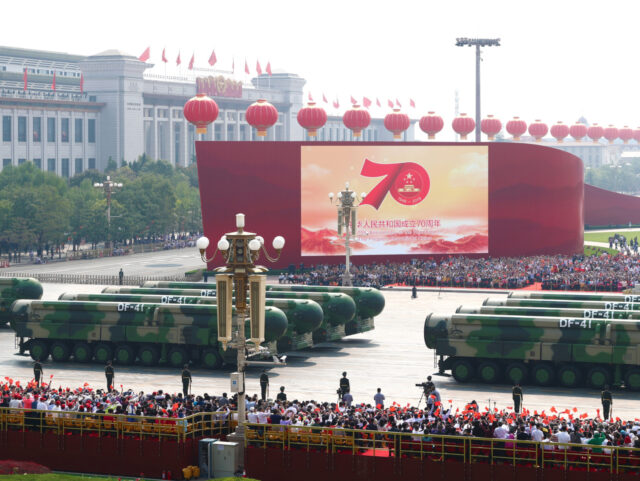Britain’s official National Security Advisor, Sir Stephen Lovegrove, has warned that the risk of nuclear escalation is greater today than it was during the Cold War, particularly with respect to China.
Speaking to the Center for Strategic and International Studies (CSIS) in Washington D.C., the former top bureaucrat at the Ministry of Defence argued that the West “face[s] a much broader range of strategic risks and pathways to escalation” than during the Cold War, not least because, during that long-simmering conflict, the Soviet Union and its satellites reached something of a “shared understanding of doctrine” which made the threat of nuclear conflict more manageable — some notable flirtations with destruction notwithstanding.
He highlighted both “Russia’s repeated violations of its treaty commitments” and, perhaps more significantly, “the pace and scale with which China is expanding its nuclear and conventional arsenals and the disdain it has shown for engaging with any arms control agreements” as particularly dangerous, saying that nuclear doctrine today “is opaque in Moscow and Beijing, let alone Pyongyang or Tehran” — referring to the capitals of North Korea and the Islamic Republic of Iran.
“[W]e have clear concerns about China’s nuclear modernisation programme that will increase both the number and types of nuclear weapon systems in its arsenal,” Sir Stephen said, saying that a China with a more sophisticated nuclear arsenal was a “daunting prospect”.
Indeed, while Britain officially retains only submarine-based strategic nuclear capabilities, other countries maintain or are working to develop sea, air, and land-based nuclear arms, both strategic and tactical — that is, designed to destroy fortifications and army and naval formations, and not just to level cities in a mutually destructive all-or-nothing exchange.
“During the Cold War, we benefited from a series of negotiations and dialogues that improved our understanding of Soviet doctrine and capabilities – and vice versa,” Sir Stephen explained, suggesting that the West could more easily stumble into a nuclear conflict in the present day almost by accident.
“This gave us both a higher level of confidence that we would not miscalculate our way into nuclear war. Today, we do not have the same foundations with others who may threaten us in the future – particularly with China,” he said of the current situation — endorsing U.S. President Joe Biden’s proposed talks with the communist regime as an “important step” and quoting wartime leader Sir Winston Churchill’s famous warning that it is best to have “jaw-jaw, not war-war”.

COMMENTS
Please let us know if you're having issues with commenting.